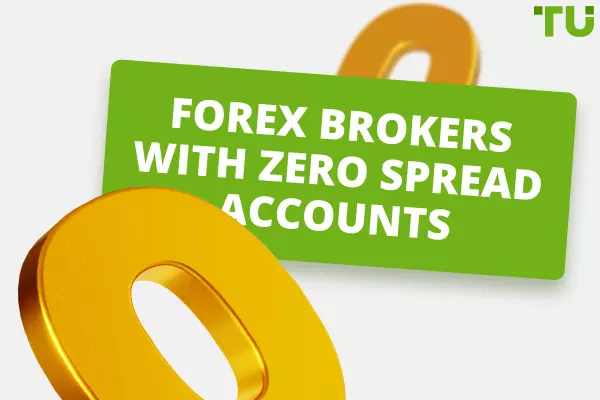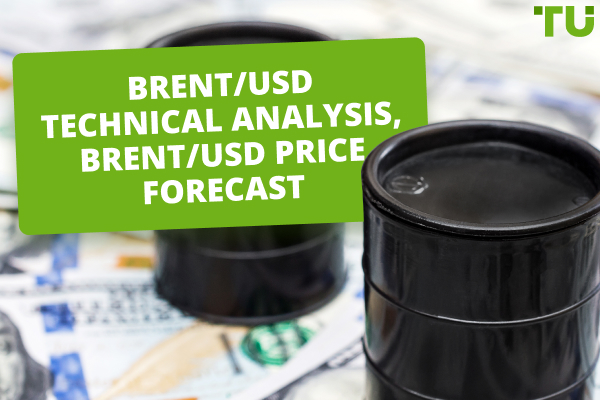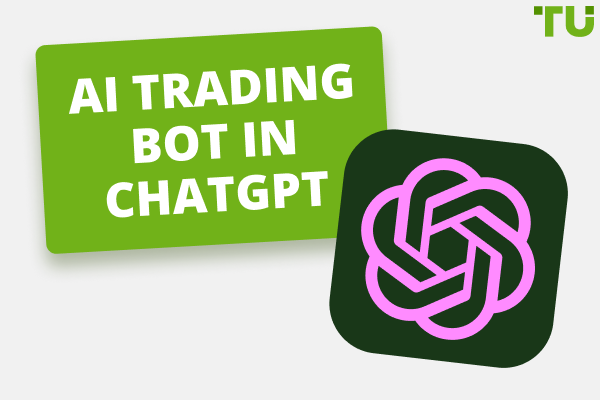FX Options Explained
Forex trading has become increasingly popular among investors and traders because of its potential to generate great returns with minimal risk. However, one aspect of trading that is often overlooked is the use of FX options. These contracts offer a unique way to gain exposure in foreign exchange markets with relatively limited risk. This article will provide you with an explanation of how they work, as well as the different types of FX options and how you can use them for trading purposes.
Let's delve right in!
Start trading FX Options now with Interactive Brokers!What Are Forex Options?
Forex options are a financial tool that allows traders to gain exposure to exchange rates without having to buy or sell actual currencies. These contracts give traders the right, but not the obligation, to buy or sell currency pairs at a set price on a specified date. This means that you can use them for both speculative and hedging purposes, as well as take advantage of leverage to magnify your returns.
Main Types of FX Options
There are many different broker options out there, and it's essential to know which is right for you. Let's go through the different types of instruments available:
Over-the-counter: Over-the-counter trades (OTC) allow traders to trade without taking delivery of any asset. One of the more significant benefits is that Forex traders will have more options. They can choose prices and expiration dates which suit their profit strategy.
Exchange-traded options: An exchange-traded option is a standardized derivative contract to either buy or sell a set quantity of a specific financial product. They are also known as 'listed options' and provide many benefits that distinguish them from other options. These kinds of trade options attract and accommodate more significant numbers of traders.
MTF-listed options: A multilateral trading facility is a European term for a trading system that allows participants to gather and transfer various securities. These are often electronic systems. There are multiple advantages to MTF-listed trading, such as that the operators cannot pick and choose which trades to execute. Complete transparency in trades and pricing must be made available.
How Do FX Options Work?
Forex options are contracts that give buyers the right — but not the obligation — to buy or sell currencies at a defined exchange rate on or before an agreed date. Buyers pay a premium for this right.
This process allows users to lock in a price on, for example, a currency they believe will rise in price. If the buyer’s market hypothesis is true, they can make money by buying the currency at the lower rate they locked in, even though it is now priced higher.
What are Forex Put and Call Options?
A put option gives the buyer the right to sell a specific currency.
A call option gives the buyer the right to buy a specific currency.
Basic Options Trading Terms
There are many terms associated with forex trading, some that you need to be familiar with to understand the concept. Some that you may hear a lot are terms such as 'put,' 'call,' and 'strike.' To make things easier, we've defined some of these key terms below for you:
Call = Call options give the holder the right to buy an asset at a specific price known as the strike price.
Put = Put options give the holder the right to sell an asset. This gives the holder the right to sell the shares at a specific price by a certain date.
Strike = A strike price is a price that a holder of an options contract can buy or sell a currency if they exercise their option contract. Strike prices are only valid until the contract’s expiration date.
Top 5 Best Options Trading Alert ServicesShould I Use FX Options?
FX options can be a great tool for both novice and experienced traders alike. Whether you're looking to trade a specific currency pair or simply gain exposure to the market as a whole, they offer several distinct advantages compared to traditional spot trading. For example, these contracts allow you to limit your downside risk in case of unfavorable market movements while taking advantage of leverage to magnify your returns.
Additionally, FX options can also be a useful tool for hedging purposes, helping you to protect your existing portfolio from potential losses in the event of adverse exchange rate movements. Ultimately, whether or not you should use these contracts will depend on your individual trading needs and goals. However, with the right knowledge and understanding, they can be a powerful tool for any trader looking to gain exposure in the FX market.
Top 3 Forex Options Strategies
When it comes to using FX options, there are a number of different strategies that you can employ depending on your objectives and market outlook. Here are some of the most popular techniques used by traders today:
Hedging Strategy
This strategy involves purchasing an FX option as a form of insurance to protect your existing portfolio from potential losses. For example, if you are long the EUR/USD currency pair and expect it to appreciate over time, you could hedge against unfavorable market movements by purchasing a put option for this pair. Another example would be if you had exposure to the UK economy and were worried about potential Brexit-related market volatility.
Scalping Strategy
Scalping involves opening a small position, then closing it shortly after in order to capture a few pips of profit. This is typically done using options that have a short-term expiry, such as one or two weeks. For example, if you believe there will be increased volatility in the EUR/USD currency pair over this period, you could purchase a one-week call option with a strike price slightly below the current market rate.
Positional Strategy
A positional strategy is one that involves purchasing an option at one strike price and attempting to hold it until it expires. This can involve buying options with longer-term expiries or simply taking on directional trades based on your outlook for the market.
For example, if you believe that there will be increased volatility in EUR/USD due to political or economic events, you could purchase a call option with a strike price near the current market rate. Then, you would hope that the currency pair moves in your favor over time, allowing you to close out this position at a profit.
Forex Options Trading Tips
Set aside funds: Assess how much capital you're willing to spend on each trade. Most successful traders risk less than 1-2% of their accounts per trade.
Start small: If you're a beginner, we suggest focusing on a maxim of one to two assets during a session.
Be realistic about profits: You don't need to win every time to be profitable. Most traders only win 50-60% of their trades.
Stick to your plan: follow your formula closely instead of chasing profits. Don't let your emotions get the better of you.
What Are Forex Options Risks?
When it comes to assessing the risks associated with Forex Trading, it's essential to look at it compared to stock trading. Both stocks and Forex tend to move much faster than other assets, with their values constantly changing over many hours. However, the forex market is far more volatile than the stock market. Profits can come easily to an experienced and focused trader.
Forex trading comes with much higher leverage, and traders tend to focus less on risk management. This means that investments become riskier and potentially come with adverse effects.
Some common risks with forex options trading include:
-
Exchange rate risk
-
Interest rate risk
-
Credit risk
-
Country risk
-
Marginal or leverage risk
Any decision to trade stocks or Forex should be based on risk tolerance, account size, and convenience.
Best FX Options Brokers
AvaTrade – Best Trading Platform for OTC Options
Formed in 2006, AvaTrade is one of the most reputable, and trusted trading platforms. The platform won lots of awards, has excellent customer support, and has a demo trading account. There are over 40 currency pairs available as spot contracts of CFDs. Suitable education materials and low commissions and fees make AvaTrade a great all-around option.
AvaTrade Best Features:
-
Minimum deposit of just $100
-
Education tools
-
Low commissions and fees
-
Demo account
Saxo Bank – Most Trusted FX Options Broker
Formed in 1992, Saxo Bank is a deeply respected European broker. They offer over 180 Forex pairs that can be traded as CFDs and spot contracts. Saxo Bank is commission-free and makes its money from the spreads. Fortunately, these spreads are very competitive.
Saxo Bank’s trading software is top of the line and very easy to use. Finally, they offer very comprehensive research capabilities and good educational materials.
Saxo Bank requires an account minimum of $2000.
SaxoBank Best Features:
-
Low-fees
-
Commission-free
-
Superb web & desktop software
Summary
FX options can be a powerful tool for traders looking to gain exposure in the foreign exchange market. Whether you are looking to hedge your existing portfolio from potential losses, profit from short-term fluctuations in spot prices, or take an active position on specific currency pairs, there are a number of different options strategies that you can use depending on your trading goals and market outlook.
Be sure to do your research and fully understand how these contracts work before you start trading. With the right knowledge and tools, however, these contracts can be a powerful tool to help you profit in the dynamic FX market.
FAQ
Who can trade FX options?
Any trader who has experience with trading in the foreign exchange market can trade FX options. In general, you will need to have an understanding of basic pricing concepts and risk management techniques, as well as a good grasp of how currency prices are determined and how global financial markets operate.
What is the best way to get started in FX options trading?
Before you start trading FX options, it is important to gain a solid understanding of how these contracts work and the strategies that can be used. You may want to consider taking an online course or workshop, reading up on the topic in books and industry websites, or working with a professional trading coach to help you develop your skills.
How can I protect myself against potential losses when trading FX options?
There are a number of different risk management techniques that you can use to protect yourself when trading FX options, such as hedging strategies, setting stop loss orders, and using limit orders to reduce exposure. You should also keep in mind that these contracts are exposed to market risk and volatility, so it is important to not over-leverage your position and always use proper risk management techniques when trading.
How do I choose the right broker for FX options trading?
When choosing a broker for FX options, you should look for one that offers a wide range of trading instruments and features, competitive commissions and fees, and good customer support. You should also research the broker's reputation and history to ensure that you are working with a trusted and reliable company.
Team that worked on the article
Oleg Tkachenko is an economic analyst and risk manager having more than 14 years of experience in working with systemically important banks, investment companies, and analytical platforms. He has been a Traders Union analyst since 2018. His primary specialties are analysis and prediction of price tendencies in the Forex, stock, commodity, and cryptocurrency markets, as well as the development of trading strategies and individual risk management systems. He also analyzes nonstandard investing markets and studies trading psychology.
Dr. BJ Johnson is a PhD in English Language and an editor with over 15 years of experience. He earned his degree in English Language in the U.S and the UK. In 2020, Dr. Johnson joined the Traders Union team. Since then, he has created over 100 exclusive articles and edited over 300 articles of other authors.
The topics he covers include trading signals, cryptocurrencies, Forex brokers, stock brokers, expert advisors, binary options. He has also worked on the ratings of brokers and many other materials.
Dr. BJ Johnson’s motto: It always seems impossible until it’s done. You can do it.










